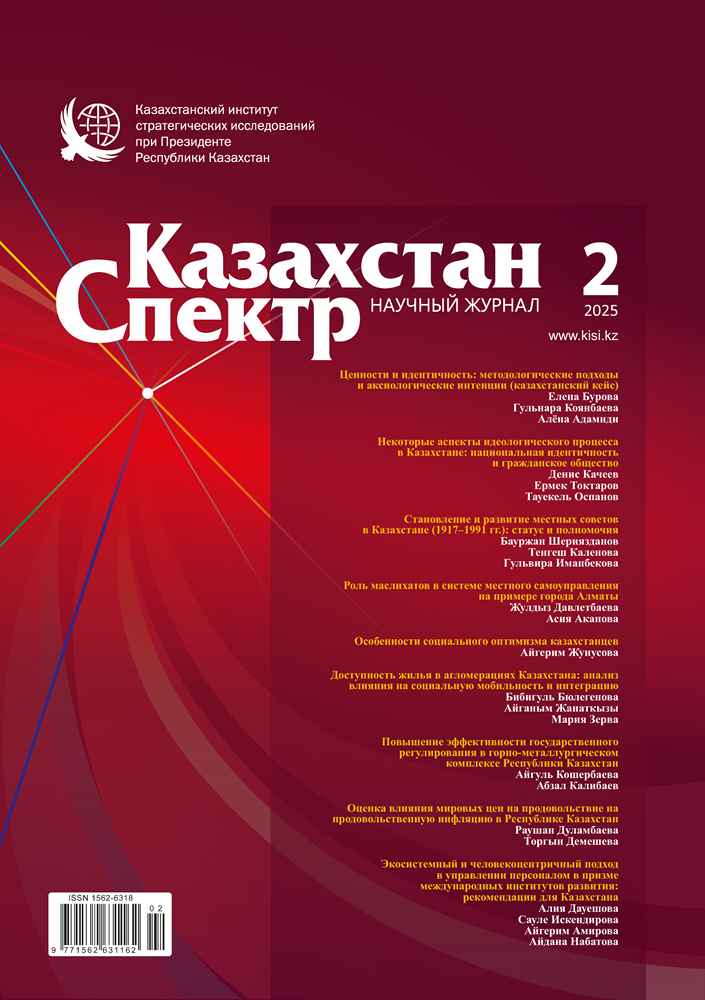Abstract
The study of values in Kazakhstani society is shaped by the assertion of sovereign identity within today’s globalized landscape. The trajectory of value transformation aligns with the emergence of a new economic structure, growing social stratification, demographic shifts, efforts to overcome axiological tensions inherited from the Soviet past, the necessity of articulating historical memory, and the rapid advance of digitalization. Shifts in worldview are captured through sociological research and reflected in a hybrid value system, marked by heterogeneity and growing societal disparities. These changes manifest in various ways—from the promotion of unity and cohesion in official state documents to the polarizing axiological narratives circulating across digital platforms. Researchers and policymakers alike acknowledge the dissonance and the influence of new factors on identity formation.
The aim of this research is to represent the discourses surrounding values within both public and specialized consciousness, based on comparative analysis conducted by research institutions. Interdisciplinary approaches prove particularly effective in tracking value shifts. Scholars draw upon conceptual frameworks of neoliberalism, neocolonialism, nationalism, and institutional theory. Comparative methodological analysis reveals the predominance of a constructivist approach, emphasizing unity and cohesion through the revival of national values and a pragmatic, critical stance toward global neoliberal ideals.

This work is licensed under a Creative Commons Attribution 4.0 International License.
Copyright (c) 2025 Kazakhstan-Spectrum


